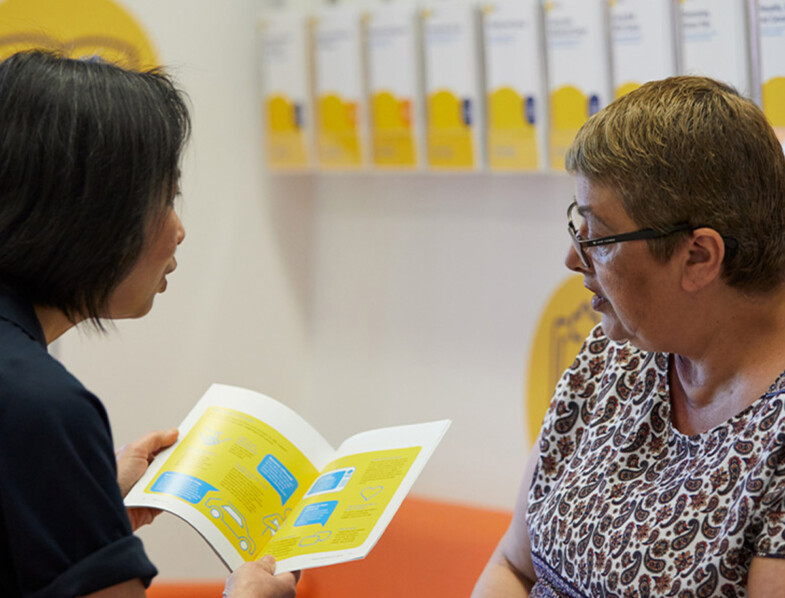This Women’s Health Week, we are highlighting the lesser-known vulvar cancer.
Read on for an overview of vulvar cancer, including important insights from two West Australian clinicians, Associate Professor Raphael Chee and Dr Paul Cohen.
What is vulvar cancer?
Vulvar cancer (also called vulval cancer or cancer of the vulva) occurs in any part of the outer surface of the female genitalia. Cancer of the vulva is classified as a skin cancer. It most commonly develops in the labia minora (inner lips) or the labia majora (outer lips) and can form slowly over many years. You can learn more about the different types of vulvar cancer here.
Vulvar cancer statistics
Vulvar cancer is rare but for those diagnosed with this disease it can have a big impact. According to the Australian Institute of Health and Welfare, there were an estimated 420 cases diagnosed in Australia in 2022. There were 105 deaths due to vulvar cancer in the same year.
In Western Australia, there are about 40 – 45 new cases of vulvar cancer each year, although that number has been steadily increasing. Vulvar cancer is most commonly diagnosed in women who have gone through menopause, but it can occur at any age, in anyone who has a vulva.
It’s important to raise awareness of vulvar cancer because those affected can find it difficult to seek help or to talk about.
Risk factors for vulvar cancer
It is not clear what causes vulvar cancer, but we know of several things that increase your risk, including:
- Age: Vulvar cancer is most common in women over 70 years old.
- Long-term infection with Human Papillomavirus (HPV): HPV is a common viral infection that anyone can get. Genital HPV is spread through sexual contact and is a key risk factor in the development of several cancers. In most cases HPV infections go away on their own, but for some, the infection causes abnormal cell changes that may develop into cancer.
- Smoking tobacco: Smoking is the leading cause of preventable death and disease in Australia, including cancer.
- Having a skin condition such as vulvar lichen sclerosus or Paget’s disease (EMPD): Only a small number of people with these skin conditions will go on to develop vulvar cancer.
- Having an untreated precancerous skin condition called Vulval Intraepithelial Neoplasia (VIN): VIN occurs when abnormal cells develop on the surface of the vulva. Not all cases of VIN develop into cancer, but getting treatment significantly reduces the cancer risk.
- A weakened immune system: Some people take medications to suppress the immune system, for example those who have had an organ transplant, or have medical conditions that weaken the immune system, such as Human Immunodeficiency Virus (HIV).
- A history of cervical pre-cancer or cervical cancer.
Ways to reduce your risk
- Stop smoking: Make Smoking History works to reduce the prevalence of smoking in Western Australia by raising awareness of the harms of smoking. The program also shares the benefits of quitting, by providing information and resources to help people who smoke to quit.
- Get the HPV vaccine: Findings from Cancer Council NSW suggest that the rise in diagnoses of vulvar cancer in women under 60 years of age may be due to an increase in HPV infections. The HPV vaccine reduces your risk of contracting the types of HPV that can raise your risk of vulvar cancer as well as several other cancers, including cervical, vaginal and anal cancers.
Symptom awareness:
There is no routine screening test for vulval cancer, so being aware of the symptoms is the best way to detect this cancer early. If you notice any of the following symptoms, you should speak to your GP or health provider:
- A lump on the vulva
- Itching, burning or soreness in the vulvar that does not go away
- Changes in the skin of the vulvar, such as thickened, raised patches, (typically red, white or dark brown), or growths that look like a wart, sore, or ulcer
- A mole on the vulva that changes shape or colour
- Blood or pus coming from a lesion on the skin or sore spot in the vulva
- Pain when urinating
Dr Paul Cohen, Consultant Gynaecologist at WA Gynaecological Cancer Service and Clinical Professor at the University of Western Australia, says that, “because vulvar cancer is uncommon, many doctors have never seen a case in their practice before. If you have any of the symptoms listed above, it is important to take it seriously. Vulvar cancers are often initially misdiagnosed as skin conditions, which can delay getting the right treatment”.
The vulva is hard to self-examine, but it is important to be aware of what is normal for your body and see your GP or health provider right away if you notice any unusual changes. Your doctor will likely perform a pelvic exam (which includes visual inspection) and arrange for further testing if needed. Dr Cohen emphasises that, “any suspicious lump or patch of skin should be biopsied to confirm or exclude a vulvar cancer diagnosis”.
Finding cancer early means that it may be smaller and less likely to have spread to other parts of the body. Associate Professor Raphael Chee, Radiation Oncologist and Director of Cancer Services reminds us that, “cancer outcomes are best when dealt with at an early stage. If vulvar cancer becomes more advanced, the available treatment options may come with more quality-of-life impacting side effects”.
For more information
- Our cancer nurses are there to listen on our 13 11 20 Cancer Information and Support Line.
September is also Gynaecological Cancer Awareness Month. For more information on other gynaecological cancers, take a look at our brochure.
